#professor layton and pandora's box
Explore tagged Tumblr posts
Text

Requested by anon
#Professor Layton and the Diabolical Box#Professor Layton and Pandora's Box#professor layton#video games#gaming#video game polls#polls#tumblr polls#puzzle#adventure
117 notes
·
View notes
Text
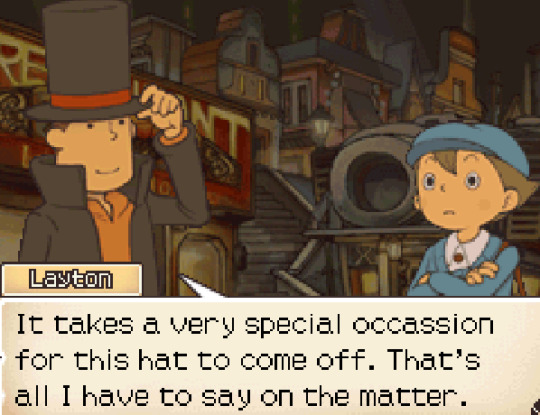
209 notes
·
View notes
Text

old sammy doodle from when i was playing pandoras box! unfortunately havent been able to finish it because i lost access to my emulator, but i hope to find a workaround some day
i miss this man
#professor layton#professor layton and the diabolical box#professor layton and pandora's box#sammy thunder#fanart#mypage art
74 notes
·
View notes
Text

i corrupted Pandora's Box so hard that Layton began speaking in filenames.
(if you can't read what he's saying, it says "map/main5.bgx". he kept repeating that over and over until the game crashed, even when there wasn't supposed to be dialogue.)
#professor layton#professor layton and pandora's box#professor layton and the diabolical box#game corruption#real time corruptor#IDK HOW THIS EVEN HAPPENS#IN WHAT UNIVERSE DOES A CORRUPTED GAME DECIDE INTERNAL FILENAMES ARE DIALOGUE#HOWWWWW
82 notes
·
View notes
Text
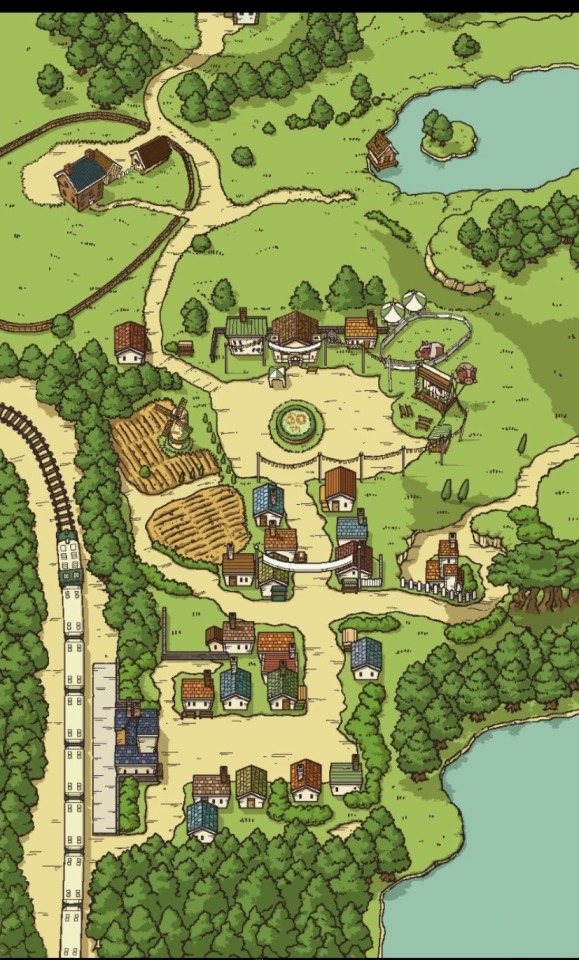
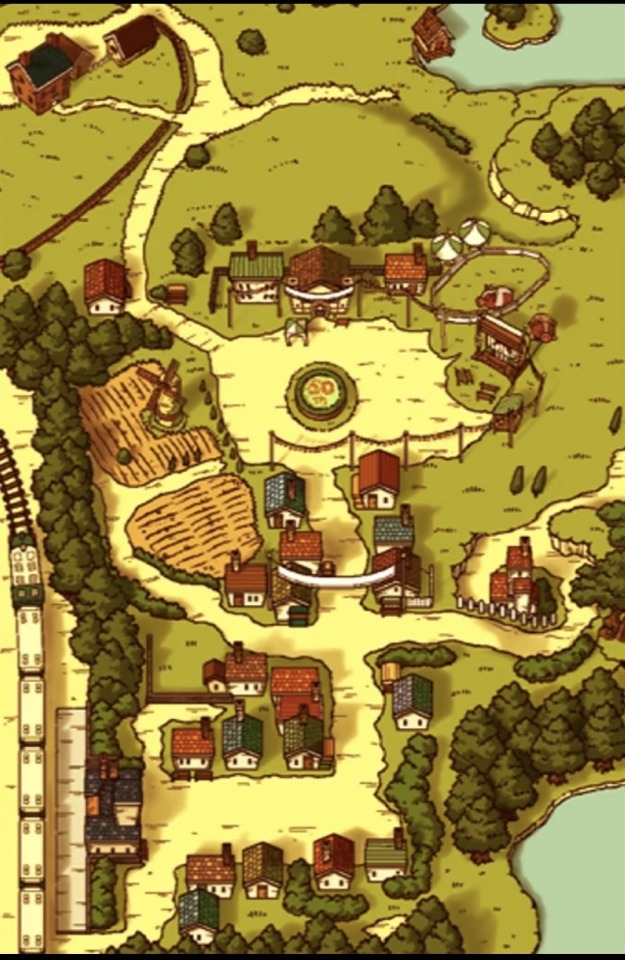
Two more maps from Diabolical Box, this time of Dropstone. One of the only maps I believe that changed depending on the time of day. Wish we could have spent more time there in game honestly.
Glad to be back!
Sorry for the long hiatus, things have been changing in my life lately. I still need some time to process, so I might not post for a little bit again. Hopefully things will get better!
#professor layton#professor layton maps#professor layton and the diabolical box#professor layton and pandora's box#diabolical box
55 notes
·
View notes
Text
As I like to say, I view the Layon series as one big lesson about dealing with loss, be it death or departure.
What Will You Leave Behind, the credits song from the game SpiritFarer (a game all about death and saying goodbye), seemed like a perfect fit.
This video (obviously) contains spoilers for every main Layton game and the film.
As always, thanks to @dearesthershel for the Spectre's Call, Miracle Mask and Azran Legacy cutscenes. The Pandora's Box and Lost Future cutscenes are from Professor Layton Extra ITA, while Curious Village I got from BlueFlareLegend. Eternal Diva scenes are from the English dub posted by gr1309.
#I tried to fit in as many deaths and sad goodbyes that I could#As a result I kept tearing up while watching it#professor layton#also “a world unseen to us all”... more like “a New World of Steam”#professor layton and the lost future#professor layton and pandora's box#professor layton and the miracle mask#professor layton and the last specter#professor layton and the eternal diva#professor layton and the curious village#spiritfarer
22 notes
·
View notes
Text

It's my favorite Professor Layton post of all time, but I can't find the original so...
#professor layton#Stachenscarfen#Professor Layton Stachenscarfen#Pl Stachenscarfen#Professor Layton and the curious village#professor layton and the lost future#Professor Layton and the unwound future#Professor Layton and pandora's box#Professor Layton and the diabolical box#zodiac signs#Professor Layton meme
20 notes
·
View notes
Text
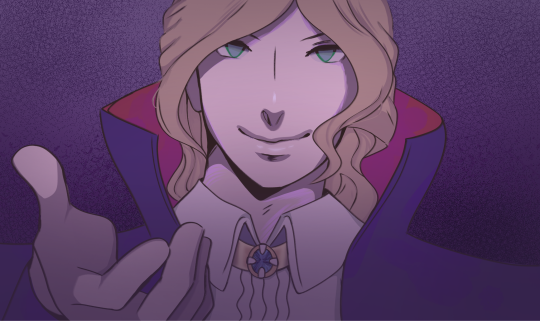
the madness of duke herzen
#professor layton#anton herzen#anthony herzen#professor layton and pandora's box#professor layton and the diabolical box#diabolical box#vocaloid#evillious chronicles#my art
64 notes
·
View notes
Text
I told myself I would go to sleep early and yet I still stayed up until late just to make this
#professor layton#fanart#my art#animation#hershel layton#anton herzen#professor Layton and pandora's box
387 notes
·
View notes
Text
welcome once again to bee thinks and cries over anton, sophia & katia
——
just think about it anton waited how ever many years for her to come back, he let himself practically to rot waiting for sophia to someday come back to him
and when “sophia” supposedly comes it’s not even her, it’s his granddaughter who came to tell him that sophia is dead and that he’s been blind to the truth this whole time
no wonder he goes out with a fit of rage! Anton has only just found out the woman who he loved, still loves has gone left him alone.
only for his granddaughter to tell him sophia never stopped thinking about him, she told their story because she never fell out of love
and his heart begins to heal once he reads the letter, the only thing, apart from the memories that were left of sophia
but I’m sure he sees Sophia in katia every day and it hurts that she’s not there with them to celebrate this new bond between grandchild and grandparent
but they make the most of the memories they have of her, even though she’s not there with them she lives on in their hearts
this is so jumbled but take my thoughts anyway
#bee rambles#professor layton#professor layton and pandora's box#diabolical box#anton herzen#sophia herzen#katia anderson#anton x sophia
18 notes
·
View notes
Text
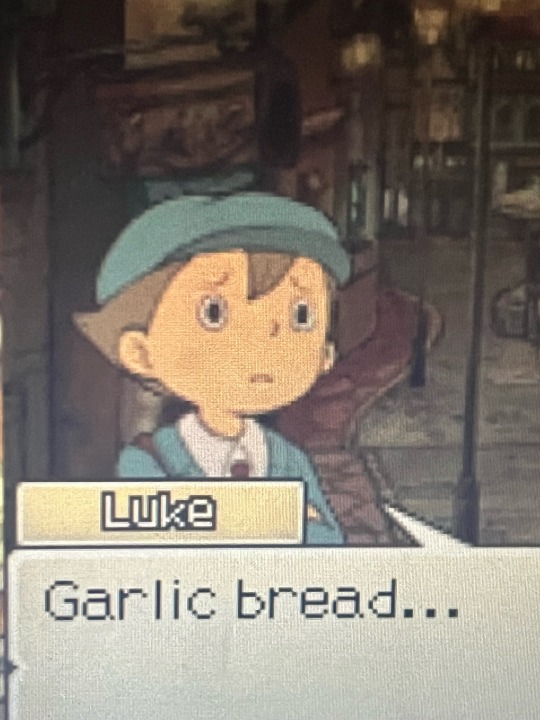
Me too, Luke
Me too
#professor layton#luke triton#professor layton and pandora's box#professor layton and the diabolical box#thposts#thambles#thimages
333 notes
·
View notes
Text


#professor layton#anton herzen#professor Layton and the diabolical box#professor Layton and Pandora's box
17 notes
·
View notes
Text

109 notes
·
View notes
Text
Wait hold on hold on hold on
How old is Anthony supposed to be before the reveal?
Because it's always about how funny the swords fight is in hindsight but his whole plot is like old teens early twenties stuff.
And isn't Katia implied to be 18 or so? And he resembles Sophia in the flasbacks. I gotta check the Old Diary but
The sword fight is "guy fights a man twice his age" both times.
#professor layton#spoilers#professor layton and Pandora's box#professor layton and the diabolical box#anthony herzen#anton herzen
10 notes
·
View notes
Text
Screenshots I took while playing the Layton games on mobile
Diabolical/Pandora's box edition:
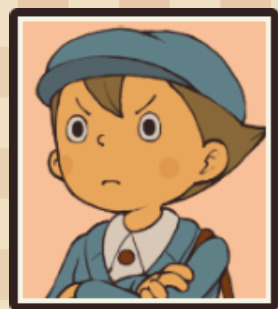
I just love his little glare
Just a fun drawing I love Layton in the background and Luke's perpetual :0 face
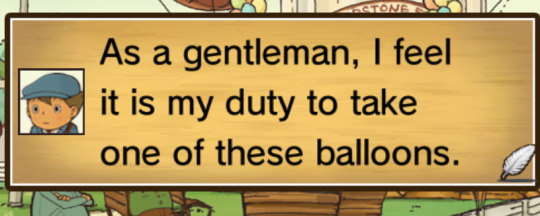
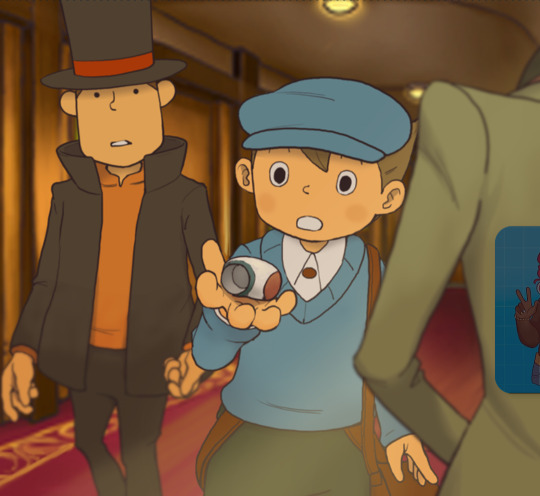
So true Luke
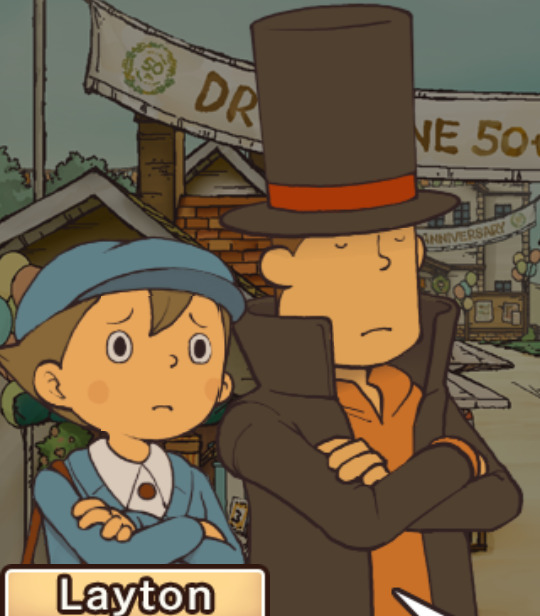
Luke: 😟
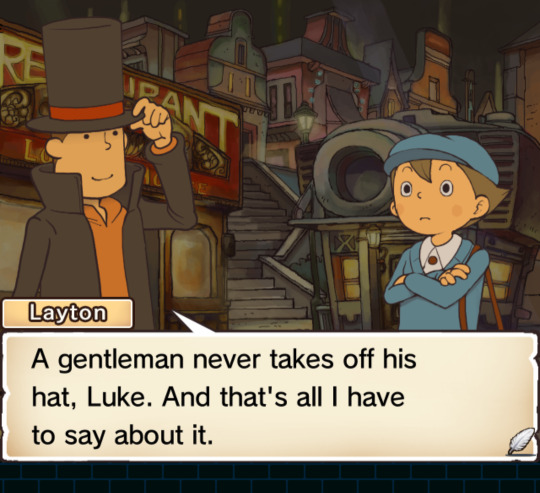
This used to be funny before I started the third game (which I'm not finished with so no spoilers) but now it's just sad
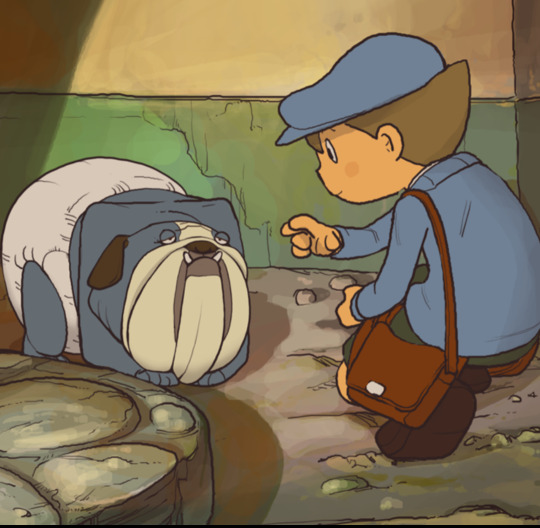
A very cute Luke I love him
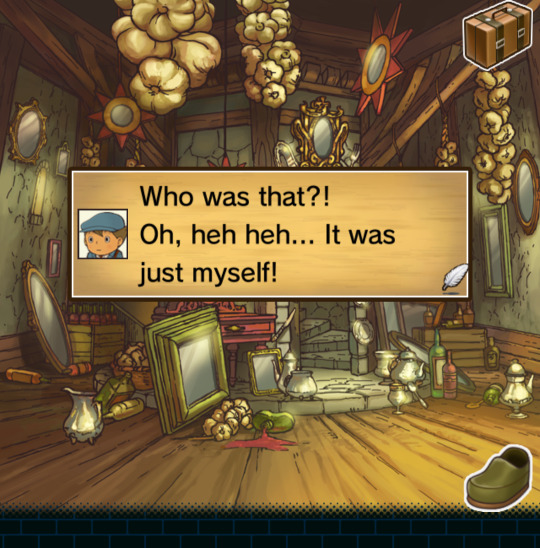
Luke once again being a cutie
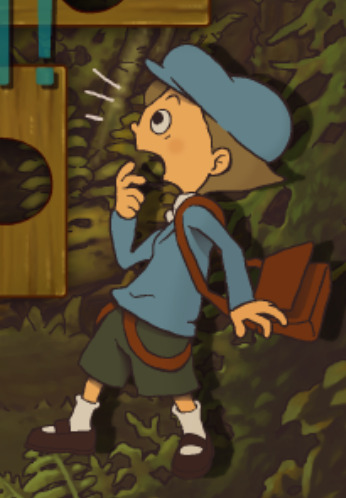
♥️💞💚🩵💗💜
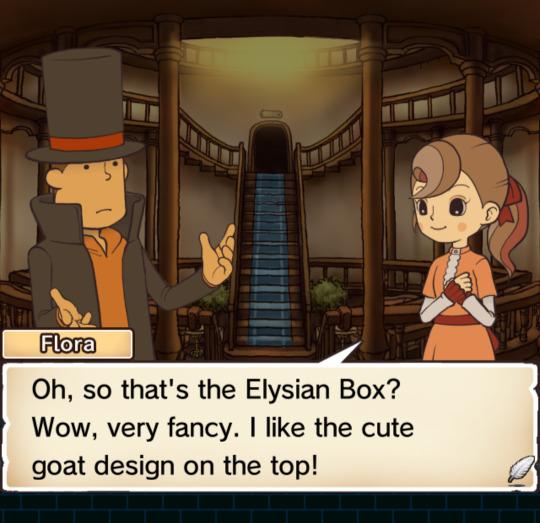
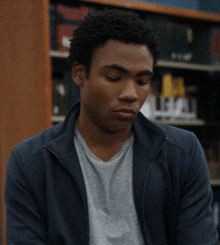
"Flora... What did you just say?"
#professor layton#professor Layton and the diabolical box#professor layton and Pandora's box#hershel Layton#professor layton and pandoras box#luke triton#flora reinhold#spoilers#pandoras box spoilers#diabolical box spoilers#professor Layton and the diabolical box spoilers#screenshot#screenshots
15 notes
·
View notes
Text
why is the professor layton fandom so unanimous in the fact that Pandora’s (diabolical) box is the best game. SHUT UP. IT SUCKS. SHUTTTTTT UPPPPPP. liking any game other than Pandora’s box should NOT be a hot take and the fact that my fave game is in the prequel trilogy is NOT WEIRD. they had an established universe, colourful characters, and way better puzzles, but fuck that because Pandora’s box plot twist is good??? NO. SHUT UP. LET ME LIKE SOMETHING ELSE.
#professor layton#professor layton and pandora's box#professor layton and the spectre's call#professor layton and the last specter#professor layton and the azran legacy#professor layton and the miracle mask#professor layton and the unwound future#professor layton and the curious village#professor layton and the lost future#/lh
7 notes
·
View notes